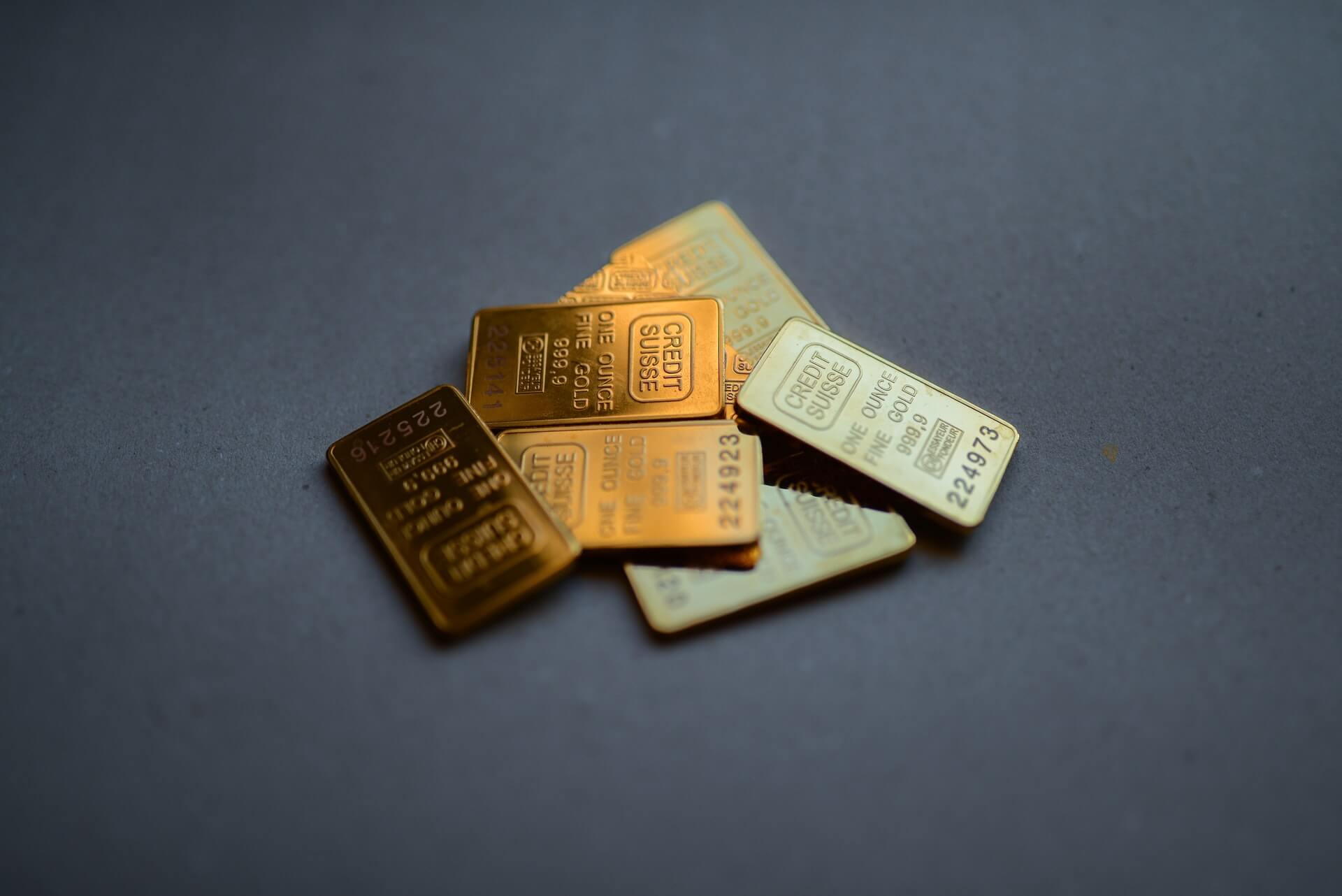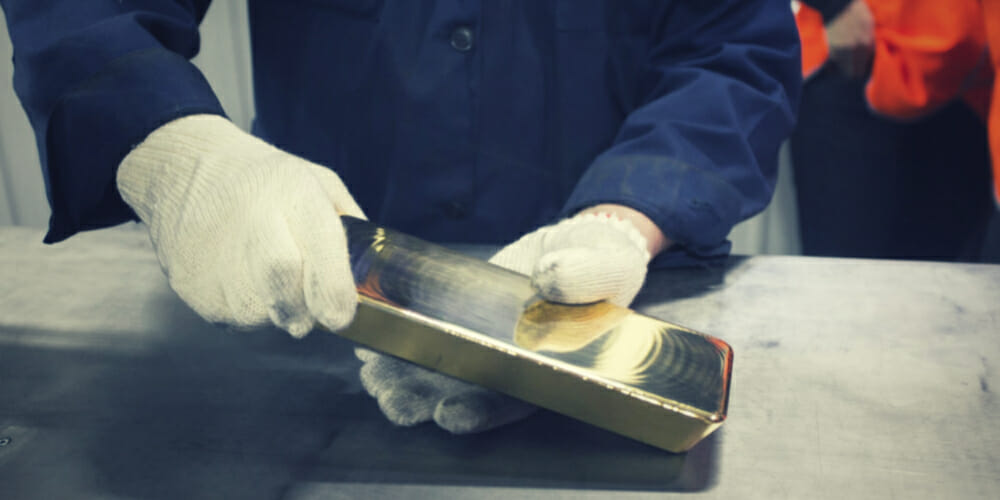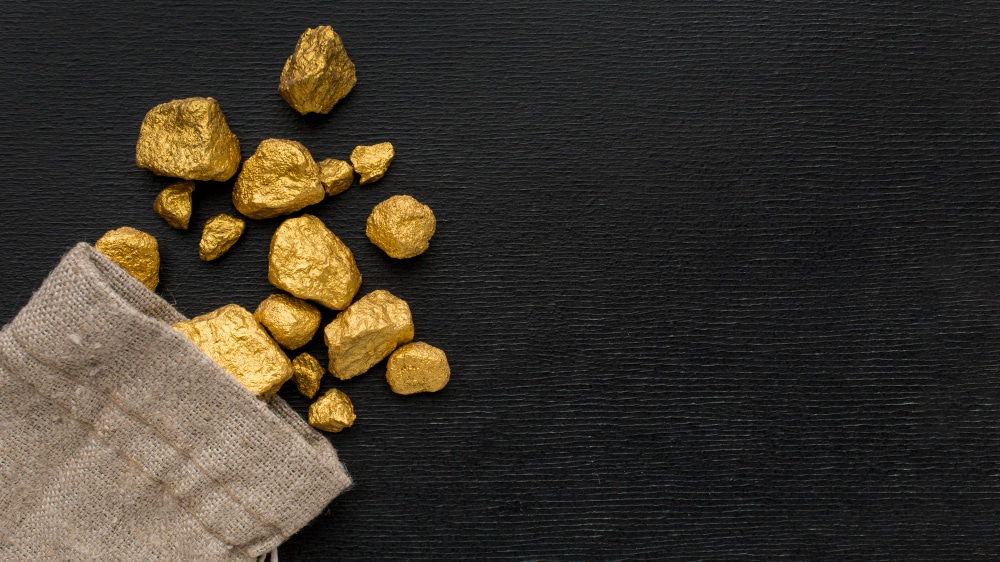
The consideration of whether "is precious metals a good career path" is a question that encapsulates the allure, challenges, and complexities of the industry. Delving into this query reveals a world of opportunities within the realm of precious metals, from the timeless appeal of gold and silver to the modern dynamics of mining, trading, and investment. Exploring the facets of a careerin precious metals offers a window into a field teeming with potential but also subject to multifaceted challenges.
What Are Precious Metals?
Precious metals are rare, naturally occurring metallic chemical elements that possess high economic value due to their scarcity, durability, and desirable characteristics. They have been prized throughout history for their use in currency, jewelry, investments, and various industrial applications.
The most commonly recognized precious metals include:
- Gold -Renowned for its luster and resistance to corrosion, gold is highly malleable and has been used as a currency, for jewelry, and in various industries.
- Silver -Recognized for its conductivity and versatility, silver is used in jewelry, coinage, electronics, and photography.
- Platinum -Known for its resistance to corrosion and high melting point, platinum is primarily used in catalytic converters, jewelry, and certain industrial applications.
- Palladium -Similar to platinum, palladium is valued for its catalytic properties and is used in the automotive industry, electronics, and jewelry.
These metals are considered precious due to their rarity, unique properties, and enduring demand in various sectors, making them valuable commodities in global markets. Their significance extends beyond mere aesthetics, as they serve as stores of value and play vital roles in financial markets, industrial processes, and cultural practices.
Is Precious Metals A Good Profession?
There comes a time in everyone’s life when they must decide their career path. It's a daunting juncture, as the choices made today will profoundly shape the future. The ongoing debate among potential investors and aspiring professionals revolves around whether a career in precious metals is a good fit.
The answer? A resounding yes. A career in precious metals offers a plethora of opportunities for businessprofessionals and newcomers alike. Roles span investment advisory, currency trading, digital coin mining, bullion sales, distribution, refining, and metal smelting services.
The world of precious metals is extensive and multifaceted - it spans from trading to mining, refining to fabrication, each demanding unique expertise and skillsets. For those seeking entry without prior experience or knowledge, navigating this industry can be bewildering.
- Job security -The precious metals industry boasts relative stability due to the consistent demand for these metals across various applications.
- High earning potential -Careers in this sector often yield higher salaries, reflecting the costs involved in extracting and processing precious metals.
- Diverse career opportunities -From metalworking to jewelry design, mining, processing, and trading, the industry offers a broad spectrum of roles.
- Transferable skills -Expertise gained, such as attention to detail and craftsmanship, can be applied to other fields.
- Potential for creativity -Working with precious metals allows for the creation of unique, beautiful pieces, fostering individual creativity and career advancement.
- International opportunities -The global nature of the industry provides chances for international work, and exposure to diverse cultures, and new communities.
- Job satisfaction -Many find the work fulfilling, dealing with materials of significant historical and cultural importance.
- Possibility for entrepreneurship -For those with entrepreneurial skills, starting a businessin this industry is feasible.
- Prestige -Working with precious metals can sometimes come with a sense of prestige, potentially leading to engagements with high-profile clients.
- Environmental consciousness -The recyclability of precious metals and industry efforts towards sustainability provide an opportunity to contribute to environmentally conscious practices.
Jobs In The Precious Metals Industry
The precious metals industry encompasses a wide range of professions across various sectors, including mining, refining, trading, manufacturing, and more. Here are some key jobs within the precious metals industry:
Mining Sector
- Geologist -These professionals study the Earth's structure to identify potential areas rich in precious metal deposits and plan extraction methods.
- Mining Engineer -Responsible for designing and overseeing mining operations, ensuring efficiency, safety, and compliance with regulations.
- Laboratory Technician -Conducts tests on samples collected from mining sites to determine the presence and concentration of precious metals.
Refining And Processing
- Metallurgist -Specializes in the study of metals and their properties, involved in refining processes to extract and purify precious metals.
- Refinery Operator -Manages and oversees the machinery and equipment used in refining precious metals to ensure proper extraction and purification.
Trading And Investment:
- Precious Metals Trader:Engaged in buying and selling precious metals, often involved in analyzing market trends and making informed trading decisions.
- Investment Analyst:Evaluates market data and trends to provide insights for investment decisions in precious metals and related markets.
Manufacturing And Design
- Jewelry Designer - Creates designs and prototypes for jewelry pieces using precious metals, gems, and other materials.
- Craftsman/Metalworker - Crafts intricate and detailed items from precious metals, ranging from intricate sculptures to functional items.
Sales And Distribution
- Bullion Dealer -Buys and sells bulk quantities of precious metals, usually in the form of bars or coins, to individuals or businesses.
- Sales Representative -Represents refining or manufacturing companies, marketing and selling precious metal products to clients.
Environmental And Ethical Roles
- Sustainability Manager -Implements and oversees environmental sustainability practices within the mining and refining processes.
- Compliance Officer -Ensures adherence to environmental regulations and ethical standards in the extraction and processing of precious metals.
Other Roles
- Numismatist -Specializes in the collection and study of coins, often working in museums, auction houses, or as consultants.
- Education and Research -Professors, researchers, and educators focusing on precious metals, work in universities, laboratories, and research institutions.
Benefits Of Working With Precious Metals
Working with precious metals offers various advantages, including but not limited to:
- Inherent Value -Precious metals have historically held significant value, often serving as a store of wealth, offering a sense of financial security.
- Higher Earning Potential -Careers in this industry often provide higher salaries compared to many other sectors, reflecting the value and demand for these metals.
- Versatile Industry -The field of precious metals spans a wide range of sectors, from mining and refining to trading, manufacturing, and even compliance, providing diverse career options.
- Transferable Skills -Skills acquired, such as attention to detail, craftsmanship, and market analysis, can often be applied across different industries.
- Jewelry Design -Working with precious metals allows for the creation of unique, artistic pieces, enabling professionals to showcase their creativity and innovation.
- Craftsmanship -Craftsmen and metalworkers can develop intricate and specialized items, showcasing their creative talents.
- International Opportunities -The precious metals industry is global, providing chances for international travel, exposure to diverse cultures, and collaboration with international markets.
- Environmental Consciousness -The industry has increasingly focused on sustainable and environmentally friendly practices, providing an opportunity to contribute to more sustainable mining and processing methods.
- Historical and Cultural Significance -Many find working with materials of historical and cultural importance fulfilling, which can lead to a sense of prestige in some roles.
- Business Ventures -For those with entrepreneurial skills, starting a business in this industry can be a feasible and rewarding option.
- Market Insights - Involvement in investment and trading roles can provide insights into global economic trends and market dynamics.
Do Precious Metals Have A Promising Future?
The future of precious metals is subject to various factors that influence their demand, value, and role in the global economy. Several aspects indicate both promising opportunities and challenges for the future of these metals:
Promising Factors
- Historical Significance -Precious metals like gold and silver have retained their value over centuries, indicating a long-term trust in their stability as a store of wealth.
- Market Demand - The global demand for precious metals, whether for jewelry, industrial use, or investment purposes, remains consistent, ensuring a degree of ongoing market need.
- Economic Uncertainties -In times of economic instability, precious metals often serve as a safe haven asset, attracting investors and stabilizing their value.
- Technological Innovation -Advancements in technology continue to introduce new uses for precious metals in various industries, from electronics to healthcare, potentially expanding their demand.
- Sustainability Efforts -The industry has been increasingly focusing on environmentally responsible mining and recycling practices, meeting the growing demand for sustainable sourcing.
Challenges And Uncertainties
- Market Volatility -Despite their historical stability, the values of precious metals can be subject to considerable market fluctuations due to economic changes and investor sentiment.
- Emerging Alternatives - Technological advancements might lead to the development of alternative materials, potentially challenging the traditional use and demand for precious metals.
- Environmental and Ethical Concerns -The mining and refining processes of these metals often face scrutiny due to their environmental impact and ethical considerations, leading to regulatory changes and increased operational costs.
- Global Economic Shifts -Changes in global economic policies, trade agreements, and currency values can impact the demand and pricing of precious metals.
- Cultural and Demographic Shifts -Changes in consumer preferences and cultural trends could affect the demand for jewelry and other luxury items made from precious metals.
15 Best Paying Jobs In Precious Metals
The U.S. Bureau of Labor Statisticsreports a median salary of $46,640 per year for jewelers and precious stone and metal workers. If you're seeking high-paying roles in the precious metals sector, here's a curated list of 15 professions that either meet or surpass the industry's median pay. For the most current salary information, click the links provided below for updates from Indeed.
Jewelry Repairer
- National average salary - $38,423 per year
- Primary duties -Restoring damaged or broken jewelry with specialized tools, ensuring repairs without further damage, and refurbishing items to their original shine or finish.
Lapidary
- National average salary- $41,924 per year
- Primary duties -Cutting, shaping, and polishing gemstones and hard materials to create decorative items, exhibiting a keen eye for detail, and enhancing the natural beauty of materials.
Jewelry Salesperson
- National average salary- $43,186 per year
- Primary duties -Retail sales of jewelry, including providing extensive product knowledge, advising customers on suitable options, and ensuring a positive shopping experience.
Jeweler
- National average salary: $46,522 per year
- Primary duties:Creating, repairing, and selling jewelry, working with various materials, and utilizing interpersonal skills to understand and cater to client preferences.
Jewelry Designer
- National average salary- $46,709 per year
- Primary duties -Crafting unique and original jewelry designs, employing expertise in materials and current industry trends, and collaborating with clients to produce custom pieces.
Quality Control Specialist
- National average salary- $47,164 per year
- Primary duties:Ensuring that precious metal products meet industry standards, employing various evaluation methods, and providing accurate reports of findings.
Goldsmith
- National average salary- $53,629 per year
- Primary duties:Designing, creating, and repairing jewelry items, working closely with clients to meet specifications, and using specialized tools and techniques.
Gemologist
- National average salary- $53,838 per year
- Primary duties -Identifying, grading, and appraising gemstones, providing accurate assessments, and advising clients on their purchases.
Jewelry And Coin Specialist
- National average salary- $57,013 per year
- Primary duties -Evaluating, appraising, and authenticating jewelry and coins, advising on value and providing certificates where needed.
Jewelry Appraiser
- National average salary- $57,186 per year
- Primary duties -Evaluating the value of jewelry items for various purposes, utilizing knowledge of materials and techniques, and providing individual consulting services.
Precious Metals Analyst
- National average salary- $74,678 per year
- Primary duties:Evaluating the financial performance of precious metal companies, conducting market analysis, and providing insights and recommendations.
Precious Metals Advisor
- National average salary - $84,045 per year
- Primary duties:Assisting clients in investing and managing precious metals, forecasting price changes, and developing investment strategies.
Miner
- National average salary- $89,730 per year
- Primary duties:Extracting and processing precious metals and gemstones, adhering to safety procedures, and using specialized equipment.
Precious Metal Refiner
- National average salary- $104,322 per year
- Primary duties -Extracting and refining precious metals from various sources using multiple methods and specialized equipment.
Precious Metals Broker
- National average salary- $147,543 per year
- Primary duties -Buying and selling precious metals for clients, offering market advice, and ensuring efficient transactions.
Why Choose A Career In Precious Metals?
The precious metals industry presents a host of appealing benefits and advantages for those considering a career within it. Here's an organized and enhanced breakdown of these advantages:
Abundance Of Job Opportunities
The industry boasts a wide array of diverse job opportunities, catering to varied preferences and skill sets. From customer-facing roles to production-centric positions, there's ample choice for individuals to find a role that resonates with their interests and strengths.
Potential For Continuous Career Growth
In a constantly evolving industry, there are abundant opportunities for career advancement. Even starting in an entry-level role, such as a clerk, can pave the way toward becoming a specialist, analyst, or manager, signifying substantial potential for professional growth.
Interaction With A Diverse Network
Working in the precious metals sector offers the chance to engage with a broad spectrum of individuals. Roles involving direct client interaction provide the opportunity to meet and communicate with a diverse range of people, potentially including individuals of significant social and economic standing due to the inherent value and luxury associated with precious metals.
Acquisition Of Specialized Knowledge
The industry demands specialized skills and knowledge. With the appropriate qualifications and expertise, individuals can secure positions that allow them to continually enhance their proficiency in this specialized field, becoming increasingly valuable assets to their teams.
Enhanced Job Satisfaction
Given the value placed on precious metals as a means of both investment and personal savings, working within this industry often brings a sense of fulfillment. Contributing to an area highly regarded and valued by many creates a sense of accomplishment and satisfaction in one's professional endeavors.
How To Become A Precious Metal Worker?
Becoming a precious metal worker involves a combination of education, training, and practical experience. Here's a step-by-step guide to pursuing a career in this field:
Education And Training
- High School Education -Focus on subjects such as chemistry, mathematics, and art, as they can be beneficial in understanding metals, their properties, and craftsmanship.
- Post-Secondary Education -Consider pursuing relevant education in jewelry design, metallurgy, gemology, or a related field. Options include:
Gain Hands-On Experience
Apprenticeship or Internship - Seek opportunities to work under established jewelers, goldsmiths, or in jewelry workshops. This hands-on experience is invaluable for understanding the craft, techniques, and industry standards.
Specialization And Certifications
- Gemology Courses - Consider pursuing courses in gemology to gain expertise in identifying and appraising gemstones, a valuable skill within the industry.
- Certifications -Attain relevant certifications such as Certified Bench Jeweler, Graduate Gemologist (GG), or titles offered by associations like the Gemological Institute of America (GIA) to enhance credibility and marketability in the industry.
Refine Skills And Network
- Practice and Skill Refinement 0Continually hone your skills in metalworking, jewelry design, stone setting, and related techniques to stay abreast of industry standards and innovations.
- Network and Gain Exposure -Attend trade shows, exhibitions, and industry eventsto network, showcase your work, and gain exposure to different aspects of the precious metals industry.
Entry Into The Workforce
- Job Search -Look for entry-level positions in jewelry stores, workshops, manufacturing companies, or refining facilities to initiate your career.
- Continued Learning -Stay updated with industry trends and technological advancements to adapt and excel in your field.
Education And Certification Requirements For A Career In Precious Metals
A career in the field of precious metals can involve various roles, each with its own specific educational and certification requirements. Here’s a breakdown based on common job types within the industry:
Jewelry Sales Or Retail Positions
- Education -Typically, a high school diploma or equivalent is sufficient. Some employers might prefer individuals with additional sales training or coursework in business.
- Certification -No formal certification is required, although sales training certificates or courses could be advantageous.
Manufacturing Or Entry-Level Production Roles
- Education -High school diploma or GED. Vocational or technical school training in manufacturing, machining, or welding can be beneficial.
- Certification - No specific certifications are usually required for entry-level manufacturing roles.
Jewelry Designer Or Goldsmith
- Education -Bachelor's degree in Jewelry Design, Fine Arts, Metalsmithing, or related fields.
- Certification -While not mandatory, certifications from institutions like the Gemological Institute of America (GIA) or others specializing in jewelry design can enhance credibility.
Gemologist
- Education -A degree in Gemology or completion of a Gemological Institute of America (GIA) program.
- Certification -Gemology certifications like Graduate Gemologist (GG) from GIA.
Metallurgist Or Precious Metal Refiner
- Education -Bachelor’s or higher degree in Metallurgical Engineering, Materials Science, or related fields.
- Certification - Professional certification from organizations like the American Society for Testing and Materials (ASTM) can be beneficial.
Precious Metal Analyst Or Advisor
- Education -Bachelor’s or higher degree in Finance, Economics, or related fields, often with a focus on commodities or metals.
- Certification -Certifications like Chartered Financial Analyst (CFA) or other finance-related accreditations can be valuable.
Mining Engineer
- Education -Bachelor’s degree in Mining Engineering, Geology, or related fields.
- Certification -Professional Engineer (PE) licensure may be beneficial for certain roles in mining.
Common Certifications In The Industry
- Graduate Gemologist (GG) -Offered by GIA for gemology specialists.
- Certified Bench Jeweler (CJB) -Granted by the Jewelers of America for skilled bench jewelers.
- Precious Metal Assayer Certification - Available through various institutions for individuals involved in assaying precious metals.
What Does A Precious Metal Worker Do?
A precious metal worker encompasses various roles within the industry, contributing to different aspects of working with valuable metals like gold, silver, platinum, and others. Here are some common tasks and roles associated with precious metal workers:
Jewelry Design And Creation
- Crafting Jewelry -Goldsmiths and jewelers design, create, and repair jewelry pieces using precious metals and gemstones. They may work on custom designs or mass-produced pieces.
- Metalworking -Precise metal manipulation, soldering, stone setting, and creating intricate designs as per specific client requests or for retail purposes.
Production And Manufacturing
- Refining and Processing - Workers in refineries and production facilities extract, refine, and process precious metals from ore, scrap, or electronic waste. They utilize methods like smelting and chemical refining.
- Machining and Production -Operating machinery and tools to shape, cut, or mold precious metals for various applications, including coins, bars, and industrial components.
Gemology And Appraisal
- Gem Identification -Gemologists are specialists in identifying, grading, and appraising gemstones, often working closely with precious metals in jewelry settings.
- Appraisal Services -Workers in appraisal roles assess the value and authenticity of precious metal items for various purposes, including insurance, resale, and investment.
Analysis And Advisory Roles
- Market Analysts -Specialists in precious metal analysis study market trends, supply and demand dynamics, and financial performance, offering insights to investors and institutions.
- Financial Advisory -Advisors assist clients in managing investments in precious metals, offering guidance and strategies for buying, selling, and safeguarding assets.
Specialized Technical Roles
- Assayers -Professionals who analyze and determine the composition and purity of precious metals using chemical and physical testing methods.
- Metallurgists -Experts in the structure and properties of metals, often working on improving processes and alloys involving precious metals.
Retail And Sales
- Salespersons -Professionals in retail settings who specialize in selling precious metal items, providing customer advice, and managing sales.
- Customer Service-Working directly with clients to understand their needs and preferences, and offering guidance in selecting appropriate precious metal products.
Research And Development
Innovation and Design -Engaging in new designs, innovative techniques, and research to push the boundaries of what can be done with precious metals and their applications.
Types Of Precious Metals
Precious metals are rare, valuable, and often used in various industries, including jewelry, electronics, medicine, and as investment assets. Some of the most well-known precious metals include:
Gold (Au)
Known for its lustrous yellow appearance and malleability, gold has been used for currency, jewelry, and as a hedge against inflation and economic uncertainty.
Silver (Ag)
Not as rare as gold but highly valuable, silver is prized for its white luster and conductivity. It’s used in jewelry, electronics, and various industrial applications.
Platinum (Pt)
More durable and resistant than gold, platinum is dense, corrosion-resistant, and often used in high-end jewelry, automotive catalysts, and medical devices.
Palladium (Pd)
Similar in appearance to platinum, palladium is used primarily in catalytic converters for automobiles and in electronics due to its catalytic properties.
Rhodium (Rh)
One of the rarest and most expensive precious metals. Rhodium is highly reflective, corrosion-resistant, and primarily used in jewelry and as a catalyst in chemical reactions.
The rarest among these metals is often considered to be Rhodium. It is exceptionally scarce in the Earth's crust and is typically found in combination with other metals, primarily extracted as a byproduct of platinum or nickel mining. Its rarity and unique properties, such as resistance to corrosion and reflective nature, contribute to its high value in various industries.
What Are Precious Metals Worth
The value of precious metals can vary widely and is influenced by several factors, including market demand, economic conditions, industrial uses, and rarity.
- Gold (Au)- Historically ranged from about $1,800 to $2,000 USD per ounce.
- Silver (Ag)- Typically between $20 to $25 USD per ounce.
- Platinum (Pt)- Generally higher than gold or silver, fluctuating between $900 to $1,200 USD per ounce.
- Palladium (Pd)- Varied from approximately $2,000 to $2,500 USD per ounce.
- Rhodium (Rh) - Considered the most expensive precious metal, with values that have surged significantly. It can range from a few thousand to tens of thousands of dollars per ounce.
Is Precious Metals A Good Career Path? - FAQs
Are Precious Metals A Good Investment?
Yes, precious metals like gold, silver, platinum, and others are often considered a good investment due to their historical value retention and their role as a hedge against inflation and economic uncertainties.
What Are The Most Common Uses Of Precious Metals?
Precious metals have diverse applications, including jewelry production, technology (electronics and catalytic converters), investment assets, medical devices, and industrial processes.
Where Are Precious Metals Found?
Precious metals are found worldwide. Gold is commonly found in South Africa, Australia, and Russia. Platinum is often mined in South Africa, while silver deposits exist in Mexico, Peru, and China, among other locations.
Why Are Precious Metals Called 'precious'?
Precious metals are termed 'precious' due to their rarity, high economic value, and their ability to retain value over time. They have unique properties and are relatively scarce in nature.
How Do Precious Metals Retain Their Value?
Precious metals retain value due to factors such as limited supply, high demand across various industries, their long history as stores of value, and their use as a hedge against economic instability.
Conclusion
The inquiry into "is precious metals a good career path" unveils a multifaceted industry that offers both promising opportunities and significant challenges. The stability, global demand, and diversity of roles make it an attractive field for those passionate about commodities, finance, or engineering. However, the market's volatility, technological advancements, and growing emphasis on ethical and environmental responsibilities make it a terrain requiring adaptability and a thirst for continuous learning. Therefore, the suitability of a career in precious metals rests upon an individual's readiness to navigate this ever-evolving landscape with resilience and a commitment to growth.




